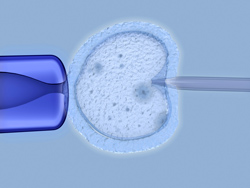Supreme Court: In Vitro Twins Conceived After Dad's Death Are Not Entitled to Survivor Benefit

Image from Shutterstock.
Florida twins conceived through in vitro fertilization after their father’s death are not entitled to Social Security survivor benefits, the U.S. Supreme Court has ruled.
The case, Astrue v. Capato, involves twins born 18 months after their father, Robert Capato, died of cancer. Capato’s widow, Karen, used frozen sperm for the in vitro process. The unanimous opinion (PDF) by Justice Ruth Bader Ginbsurg supports the Social Security Administration’s interpretation of the governing statute.
According to the SSA, children are entitled to benefits from a wage earner who dies if they qualify for inheritance under state law. In Florida, a child may not inherit through intestate succession unless conceived while the deceased parent was still alive.
“Tragic circumstances—Robert Capato’s death before he and his wife could raise a family—gave rise to this case,” Ginsburg wrote. “But the law Congress enacted calls for resolution of Karen Capato’s application for child’s insurance benefits by reference to state intestacy law. We cannot replace that reference by creating a uniform federal rule the statute’s text scarcely supports.”



